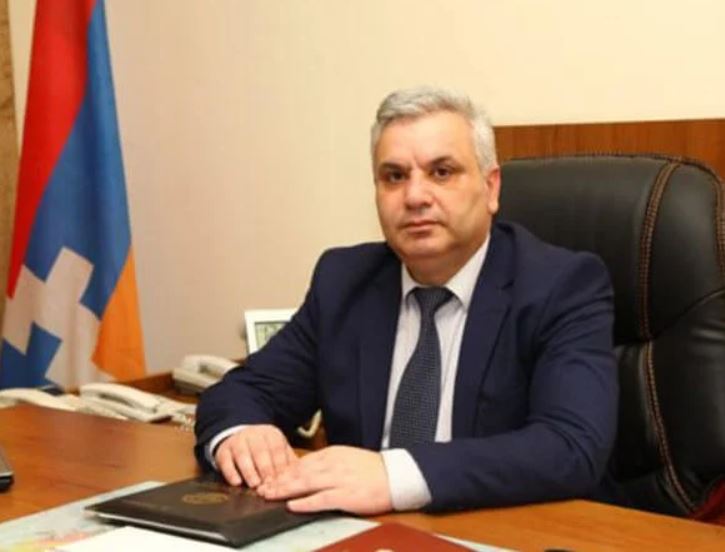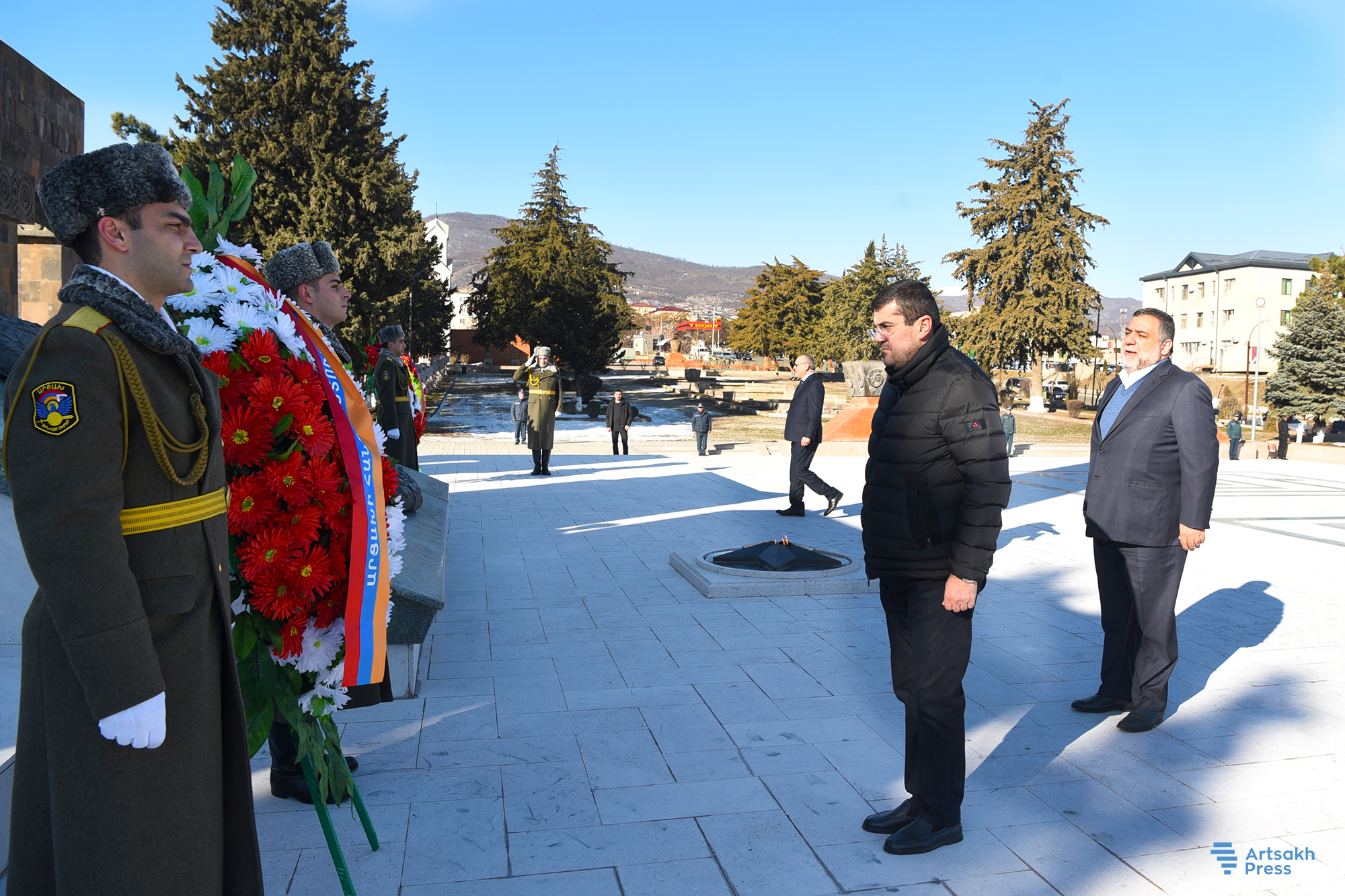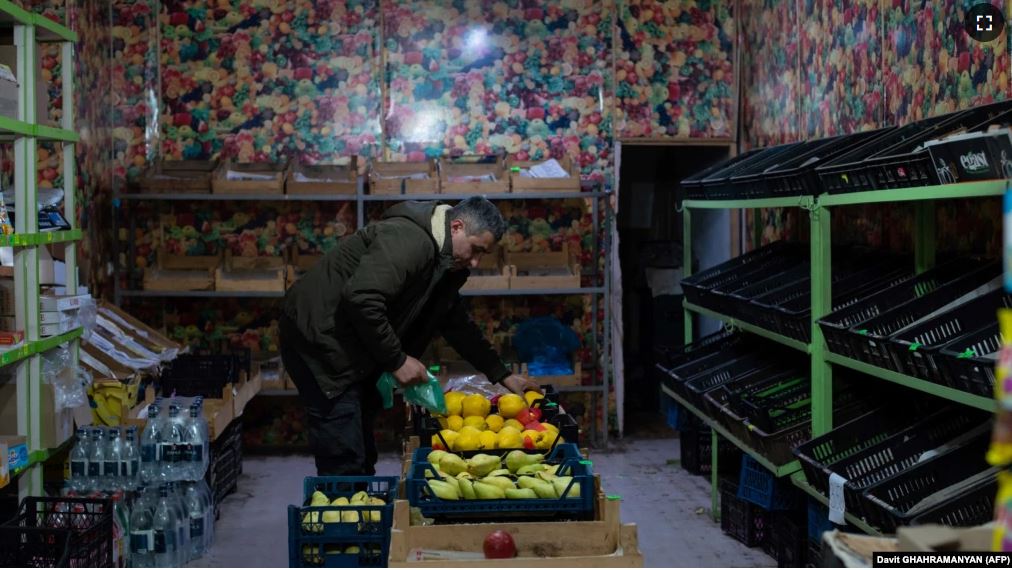“Anyway, we were told that the reason for the two-day interval was Nikol Pashinyan’s departure to Astana” – “Aravot”’s interlocutor is Deputy of Artsakh’s Armenian Revolutionary Federation faction Artur Mosiyan.
-Recently in Prague, under the auspices of the president of the European Council Charles Michel, meetings occurred between the presidents of Azerbaijan and Turkey, Ilham Aliyev, Recep Tayyip Erdoğan, and the Armenian Prime minister where French president Emanuel Macron was present as well. During one of the meetings, the Azerbaijani president announced that Artsakh is an Azerbaijani territory and he does not intend on discussing the matter of his citizens who live there with the international public, certifying that a consensus on this issue has been reached among those present. What is your opinion on this concern and particularly and generally the announcement spread after the meeting in Praha, according to which Artsakh will be defined as a cultural unit?
-This is not the first time Aliyev has talked about this: they have been saying that for already 30 years. After the 44-day war, though, the emphasis became more condensed. The issue does not lie in that, and we do not have any problem with it: Aliyev is not the one deciding who lives here and the destiny they will have, it is all established by Artsakh’s nation. One thing has changed, though: unlike before, when Aliyev was the only one who swaggered, this time, the Armenian government, in the form of Nikol Pashinyan and his government, expressed silent solidarity and did not oppose. Moreover, contrarily, whether in or outside the parliament, they contribute to Aliyev’s statements with their speeches and behavior.
But I restate Artsakh’s nation is the one choosing its fate. During the meetings with Artsakh delegations, behind closed doors, the Armenian authorities claim that the fate of Artsakh is determined by its people, which Armenia supports while acting exactly oppositely when making external statements. This is the reality. The rest is fiction.
Read also
-By the way, the Artsakh delegation, led by president Arayik Harutyunyan, was in Armenia and waited for meetings with the Armenian authorities for days. What was the problem?
-For several days, the members of the Artsakh delegation had meetings in Armenia. The meeting with prime minister Nikol Pashinyan was delayed for one reason: they said that the meetings would be organized after the CIS summit in Astana so that it could summarize the outcomes. Anyway, we were told that the reason for the two-day wait was Nikol Pashinyan’s departure to Astana.
-Arayik Harutyunyan presented a report on those meetings to Artsakh parliament deputies. Were there any news, discoveries, or expectations?
-Nothing new happened. The members of the Artsakh delegation in Yerevan said that the statement unanimously adopted in the Artsakh parliament on April 14, 2022, is a milestone for us. It was signed by all the extra-parliamentary forces, non-governmental organizations, etc. The issue is that we are told that the Armenian government tells one thing behind closed doors, but their actions… In the end, it is not important anymore, who says what. It is important, though, who does what, and judging from what they are doing, I can assert that the Azerbaijani government’s position has not changed for 30 years – the colors just got denser, but Armenia’s position has changed: they say and do different things, or they don’t oppose to Azerbaijan at all.
-After the meeting in Prague, a small group of EU civilian observers was promptly dispatched to Armenia to observe the Azerbaijani-Armenian and Azerbaijani-Artsakh line of contact. Taking into account the civilian mandate of the observation mission and the mission experience in Serbia, which only recorded how many people were raped, and how many suffered gruesome death or death with “humanitarian displays” what should the expectations be from the work of the mission? Especially considering the fact that some circles in Armenia are rather excited about that arrangement.
-They are carrying out a part of their conspiratorial plan: it is a process of eliminating Russia from the region. Those observers do not and cannot have any role in the safety of Armenian borders, they don’t have any role in the international arena. The example of Serbia that you brought is concrete proof of that. The Armenian authorities are simply changing the geopolitical orientation and these are the first attempts, whether they will succeed or not will be evident during further developments.
-Russia seemed to have become more vigilant: Sergey Lavrov announced that CSTO is also ready to send their observers to Armenia. What does this mean, will the interests of the West and Russia explode in Armenia?
-This means that when Nikol Pashinyan with his administration came to power in 2018, they turned the country into another point of conflict between the West and Russia. As a consequence, Armenia and its nation will suffer. And those groups you mentioned should not have any reason for excitement as, regardless of the processes, if you force your country to become an experiment field for the third countries to sort their relations out, your country and your nation will suffer. The administration carrying it out, though, will not suffer as they implement their plan.
– Shortly, by the end of October, another meeting between Aliyev and Pashinyan is planned, under the auspices of the Russian President this time. It is worth mentioning that after the meeting in Prague, the Russian media leaked the proposals of the West and Russia on the settlement of the Artsakh conflict. In this context, what expectations do you have from the incoming meeting?
– As long as Nikol Pashinyan is the Armenian Prime Minister, I expect new challenges both for Armenia and Artsakh and the Armenian nation.
Interview by Nelli Grigoryan
























































